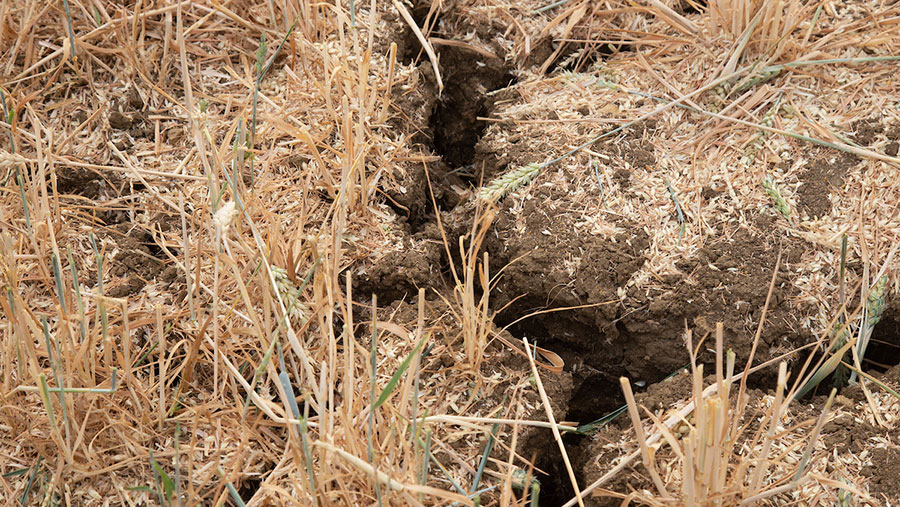Editor’s view: We need a better plan for water security
 © Tim Scrivener
© Tim Scrivener Vast swathes of the country are now extremely dry, and few will complain if the rain forecast next week lasts a fortnight.
Experts are still haggling over when exactly we will have reached the textbook definition of drought, but it could come as soon as today (12 August), when the National Drought Group is scheduled to meet.
The effect of the lower-than-average rainfall this spring and summer is already abundantly clear for all farming sectors in affected areas, with cattle and sheep eating into this winter’s fodder supplies and some of next year’s cropping plans in jeopardy.
See also: Editor’s view: My pick for the next PM? Teddy Roosevelt
Globally, the warmest seven years on record have all been since 2015, and farmers in the US are also seeing crop yields dwindle.
Last year’s well-publicised drought in California cost the Golden State US$1.7bn in direct and indirect costs, and caused nearly 162,000ha of farmland to be fallowed.
This makes what we’ve experienced so far in the UK seem relatively mild, although the last period of prolonged dry weather was only in 2018.
How frequently do we have to experience these conditions before they start being expected and planned for, rather than battled against during the event?
As someone said to me recently, it is near impossible to prepare for a water shortage once you’re in one – it is the work of many years to try to mitigate some of it.
At Thame Sheep Fair in Oxfordshire last week, the sun again blazed overhead as ewes ran through a ring surrounded by bone-dry, grassless fields.
So it was with some surprise that I watched the hammer fall at good prices for many pens, with values within touching distance of last year’s high levels.
Clearly, there is still plenty of grass in the North and West, and a good trade must mean there is a healthy balance between supply and demand.
Some farmers without grazing will also no doubt be banking that it is cheaper to buy stock now and feed them than wait for it to rain and watch the price go up.
We all, to a certain extent, have to be optimistic about the weather or there would be many a year where money was put at risk by turning the ram in with the ewes or buying seed to push in the ground.
Yet alongside optimism, there also has to be realism. This year has not been as bad as 1976, but just as a dry 1975 laid the ground for that terrible following year, so too could this year if we don’t get substantial replenishment this autumn and winter.
And that is why NFU president Minette Batters has been absolutely right to call this week for a radical rethink on how we maintain water supplies.
This spring and summer should live long in the memory, not as an aberration, but as the point at which water management moved up the agenda to become a continual priority, come rain or shine.
Just as farmers cannot create the deep-rooted herbal ley they should have grown after their existing sward has died off, government can’t magic up a new network of reservoirs or a national water grid only once supplies have run low.
It is at moments like this that the lack of a coherent food strategy becomes so painfully obvious.
Liz Truss has pledged to unleash British farming if she becomes the next prime minister.
If she wins and truly means it, then throwing her weight behind a proper water security plan would be an excellent place to start.

